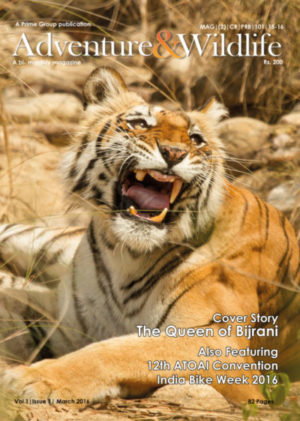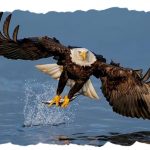
Animal conservation “a government priority” says United Arab Emirates
Dubai and the United Arab Emirates are making animal conservation a government priority at a time when biodiversity is under threat and more animals face extinction globally.
A report by the United Nations earlier this year claimed animal extinctions are at an unprecedented high. According to the organisation, as many as one million species are under threat.
On a visit to the desert, you might expect to find camels or antelope, maybe some hawks. But Dubai’s Al Marmoom animal sanctuary is teeming with biodiversity with hundreds of different species of birds, mammals, and reptiles.
The sanctuary covers 20 percent of the whole area of Dubai. In the beginning, it was a desert populated by native animals, but as the sanctuary expanded to more than 50 oases, it was discovered these water bodies could control the environmental balance.
The sanctuary has even managed to attract the Arabian Oryx. This animal was declared extinct in the wild in 1972, but has now been brought back from the brink by the reserve.
Saoud Faisal is a wildlife officer at the Al Marmoom sanctuary. He says in the 80s and 90s the Oryx were overhunted for food. Now the animal is considered part of the region’s wildlife.
“They are totally protected now and also they are healthy,” he explains. “We have them in large numbers which last year reached more than 500.”
From desert oases to indoor tropical environments, recent laws in Dubai mean greater governmental support for animal sanctuaries.
Laws were introduced in 2007 to cover animal welfare, but awareness really started to build in 2016.
The laws also apply to rare and exotic animals. Some are looked after in animal sanctuaries like Green Planet.
Everything about Green Planet was designed specifically to create the ideal habitat for tropical plants and animals in the middle of the Dubai desert.
The sanctuary houses a wide range of species including many different birds, and mammals such as two-toed sloths. And lizards like green iguanas or basilisks.
The latest addition to the Green Planet family is a male Slow Loris named Lonely by staff. But this wide- eyed, rare primate wasn’t lonely for long.
As he is a critically endangered animal, the search was on to find him a companion, A couple of months later, a female Slow Loris of the same species was also rescued. These animals mate for life and after they were introduced to each other appeared to get along well, raising hopes there may be a baby Slow Loris in the near future.








